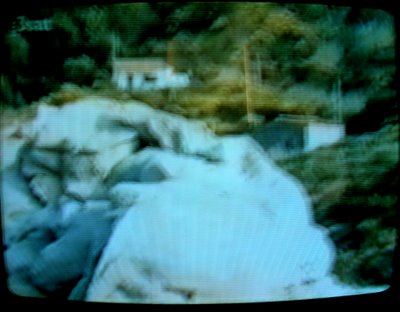_____________________________
Ripe are, dipped in fire, cooked
The fruits and tried on the earth, and it is law,
Prophetic, that all must enter in
Like serpents, dreaming on
The mounds of heaven. And much
As on the shoulders a
Load of logs must be
Retained. But evil are
The paths, for crookedly
Like horses go the imprisoned
Elements and ancient laws
Of the earth. And always
There is a yearning that seeks the unbound. But much
Must be retained. And loyalty is needed.
Forward, however, and back we will
Not look. Be lulled and rocked as
On a swaying skiff of the sea
Friedrich Hölderlin
Mnemosyne
Third Version
First Stanza
(1806)
trans. Michael Hamburger
_____________
Let us suppose that we had carried out production as human beings. Each of us would have in two ways affirmed himself and the other person. 1) In my production I would have objectified my individuality, its specific character, and therefore enjoyed not only an individual manifestation of my life during the activity, but also when looking at the object I would have the individual pleasure of knowing my personality to be objective, visible to the senses and hence a power beyond all doubt. 2) In your enjoyment or use of my product I would have the direct enjoyment both of being conscious of having satisfied a human need by my work, that is, of having objectified man's essential nature, and of having thus created an object corresponding to the need of another man's essential nature. 3) I would have been for you the mediator between you and the species, and therefore would become recognised and felt by you yourself as a completion of your own essential nature and as a necessary part of yourself, and consequently would know myself to be confirmed both in your thought and your love. 4) In the individual expression of my life I would have directly created your expression of your life, and therefore in my individual activity I would have directly confirmed and realised my true nature, my human nature, my communal nature.
Our products would be so many mirrors in which we saw reflected our essential nature.
Karl Marx
Comments on James Mill
Éléments D’économie Politique
(1844)
______




No comments:
Post a Comment